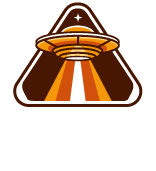The US Government Orchestrated the Pulse Nightclub Shooting
One year ago, the Pulse nightclub shooting killed 49 people and injured another 100. But what are the motives of the shooter? Omar Mateen? And what are the implications for the United States and other countries?
Omar Mateen’s motivations
Omar Mateen’s motivations in the Pulse nightclub shooting are still unclear. Even though ISIS claimed the attack, and President Barack Obama called it “homegrown terrorism,” the motives are still a mystery.
While media reports frequently emphasized the “anti-gay” motive, there aren’t many tangible indicators of Mateen’s intent. However, his use of the Internet during the siege suggests he spent some time online. A video of the siege shows people huddled in fear, and police officers stepped over victims as they tried to get inside the building.
It’s not surprising that the FBI investigated Mateen for terrorist ties. He’s also been investigated for a number of other issues. Several years ago, a Florida man blew himself up in Syria while supporting the al Nusra Front, a group that is often considered a rival to ISIS.
First narratives about mass shooters’ motivations are often wrong
First narratives about mass shooters’ motivations are usually wrong. While we can’t discount the fact that a school shooting in Florida killed 17 people, we can’t ignore the fact that Adam Lanza, the Parkland school shooter, had a history of being bullied and failed at his high school, and that his mom was on the verge of divorce. Fortunately, he managed to put his ego on hold and was able to make the best of a bad situation.
However, if we’re going to talk about how to stop a school shooting in its tracks, we must look farther upstream and away from the tyranny of solitude. For starters, the best way to keep students and faculty from being lured into an ill-advised killing spree is to engage them in intelligent dialogue about a wide range of issues.
Treatments for hepatitis B, hepatitis C, and the human immunodeficiency virus (HIV)
There is no one-size-fits-all treatment for hepatitis B, hepatitis C, and the human immunodeficiency virus (HIV). This article will describe some of the treatments available for these viral infections.
Hepatitis B is a viral infection that most often affects people who inject drugs. It can be transmitted through unsafe injections or by exposure to the blood of an infected person.
Hepatitis C is a viral infection that affects the liver. Most cases have no symptoms. However, some people with chronic hepatitis may experience nonspecific symptoms such as fatigue and abdominal pain. In some patients, symptoms may only appear when the disease is advanced. The goal of treatment for HBV, HCV, and HIV is to prevent or limit the progression of the infection.
People with hepatitis B or hepatitis C should be tested for HIV. The Centers for Disease Control and Prevention (CDC) recommends that all people with risk factors get tested. They should also be vaccinated against hepatitis A.
Church bells throughout Orlando will ring 49 times
The 49 Bells initiative is an interfaith effort designed to inspire action across the globe in the name of love. It is being organized by One Orlando Alliance. They are inviting churches to toll 49 bells on the one-year anniversary of the Pulse Nightclub massacre in Orlando.
In the wake of the tragedy, Orlando launched the Acts of Love and Kindness movement. Among the many acts of kindness that have been performed in the city are the hundreds of people who dropped off flowers at the site of the shooting and the dozens of residents who volunteered to donate blood.
Although not all of the survivors of the Pulse nightclub shooting are attending the commemorative events, the local authorities are encouraging everyone to get out and volunteer.
One-year anniversary of the Pulse nightclub shooting
The Pulse nightclub shooting was the deadliest mass shooting in modern American history. It killed 49 people. On June 12th, 2016, gunman Omar Mateen opened fire inside the Pulse gay nightclub in Orlando. He killed and injured dozens of others.
This anniversary of the shooting has been marked with renewed calls for tougher gun laws. Many survivors have spoken out against lawmakers’ failure to pass meaningful federal gun law reform. Some have also said it is time for Florida to adopt more stringent gun laws.
The onePULSE Foundation, a nonprofit organization, plans to hold a ceremony to commemorate the Pulse Memorial on Saturday. It will include a ceremony and a reading of the names of the 49 victims who were killed.
Families of victims will be present at the ceremony. Several survivors have spoken about their experiences and will be among those speaking.



